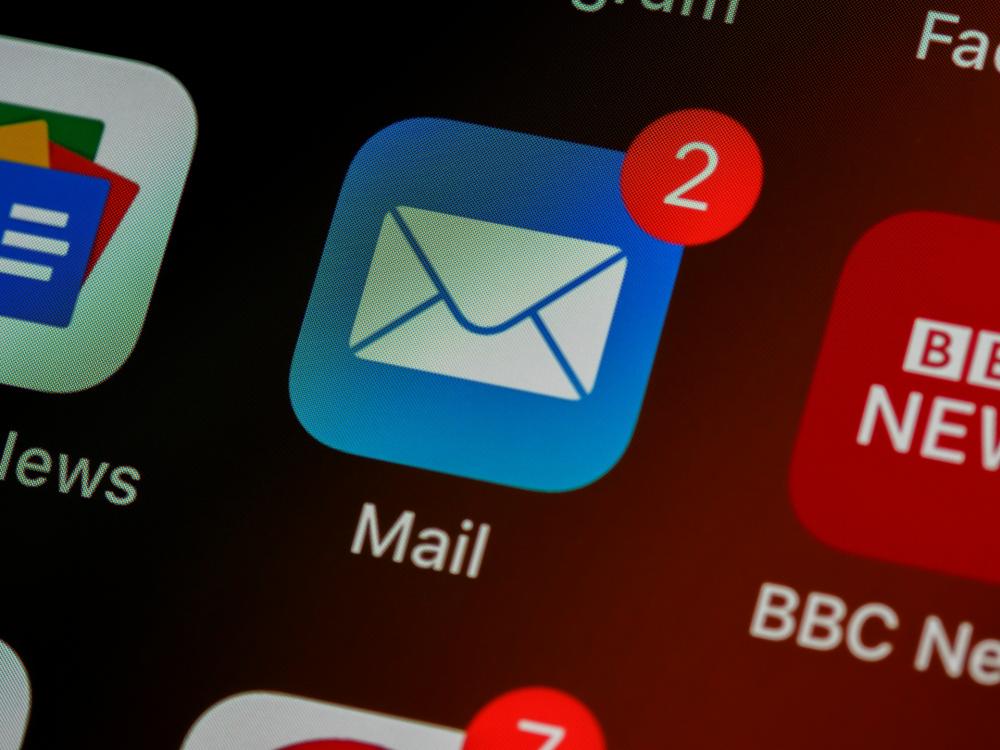Event marketing is a powerful way to promote your brand, connect with your audience, and create unforgettable experiences.
With today’s technology and social media, event marketing is more dynamic than ever.
Want to learn how to leverage this tool for your business? Keep reading to discover how to create impactful events that leave lasting impressions and elevate your brand.
What is Event Marketing?
Event marketing is the strategy of promoting a brand through live, immersive experiences like trade shows, conferences, or product launches. It creates direct engagement, boosts brand awareness, and builds loyalty.
Key Takeaways:
- Event marketing is a powerful tool for engaging with your target audience in person and online.
- Pre-event promotions, live event experiences, and post-event follow-ups help build brand loyalty.
- Effective event marketing leverages creativity, partnerships, and audience engagement.
What is Event Marketing? A Detailed Overview

Event marketing involves promoting and creating engagement for your brand, products, or services through an event or experience.
It’s about bringing people together—whether in person or virtually—to interact with your brand in a meaningful way.
This could include hosting a product demonstration, conducting a seminar, sponsoring a large event, or even organising a smaller networking gathering.
The ultimate goal of event marketing is to build a stronger relationship with your audience by providing them with an engaging and memorable experience.
It’s a strategy that builds trust, creates emotional connections, and enables real-time feedback and interactions, which helps businesses improve their offerings and enhance customer loyalty.
Types of Events That Work for Marketing
Not all events are created equal, and different types of events work for different kinds of marketing goals. Let’s look at the types of events that are most effective for marketing:
Product Launches
Product launches are one of the most popular event types for companies looking to promote a new offering.
These events are designed to generate excitement and hype around a product, bringing together media, influencers, and potential customers for the big reveal.
A successful product launch sets the stage for sales and builds anticipation.
Tips for Success:
Create a sense of exclusivity (VIP guests, pre-release access). Use interactive demos to engage attendees. Encourage social media sharing to amplify the buzz.
Trade Shows and Conferences
For B2B businesses, trade shows and conferences are prime opportunities to showcase products, network with potential clients, and learn from competitors.
These events often attract industry experts, buyers, and decision-makers who can significantly impact your business.
Tips for Success:
Have engaging booths with product demos. Offer promotional giveaways that tie into your brand. Collect leads for future marketing and follow-ups.
Webinars and Virtual Events
With the rise of digital platforms, virtual events have become a major player in event marketing.
Webinars, online conferences, and virtual trade shows allow you to connect with your audience globally, making them perfect for promoting products, sharing industry knowledge, and building your brand presence online.
Tips for Success:
Promote the event well in advance to maximise attendance. Use interactive features like Q&A sessions, polls, and chat. Follow up with attendees after the event for continued engagement.
Experiential Marketing Events
Experiential marketing events allow customers to interact with a brand in a unique and memorable way.
These types of events focus on providing an immersive experience, often creating a physical or emotional connection with the audience.
Think pop-up shops, live performances, or hands-on demonstrations.
Tips for Success:
Focus on creating a memorable, immersive experience. Use sensory elements (sight, sound, touch) to enhance the experience. Encourage user-generated content, such as photos and videos.
Community Events
Community events are great for businesses looking to build local awareness and loyalty. These can be anything from charity events to local sponsorships or a simple meet-up.
Hosting or sponsoring a community event shows that your brand cares about its local community, which can lead to long-term loyalty.
Tips for Success:
Partner with local influencers or charities to increase visibility. Provide incentives for people to participate (discounts, free samples). Create a positive association with your brand by focusing on local causes.
Planning Your Event Marketing Strategy

An event marketing strategy involves more than just organising the event itself. It requires careful planning and execution before, during, and after the event to ensure its success.
Here’s how to structure your approach:
Set Clear Objectives
Before diving into the logistics, take the time to define what you want to achieve. Do you want to increase brand awareness, generate leads, or boost sales?
Setting clear and measurable goals helps guide your planning process and ensures that your event serves a purpose.
Identify Your Target Audience
Understanding your target audience is crucial to planning a successful event. Who are you trying to engage?
What are their interests and needs? Tailoring your event to meet the specific demands of your audience will increase the chances of success and help maximise your return on investment.
Choose the Right Type of Event
Once you know your goals and audience, decide what type of event will best suit your objectives.
Whether you’re hosting an in-person or virtual event, the format will impact how you plan the content, marketing strategy, and follow-up.
Create a Compelling Event Experience
The success of your event hinges on the experience you create for attendees. Make sure it’s not only informative but also enjoyable and memorable.
Incorporate interactive elements, engaging speakers, and entertainment to keep participants interested and invested throughout the event.
Promote the Event Effectively
Promotion is a key component of any event marketing strategy. Use a mix of digital marketing channels—email, social media, content marketing, paid ads—to get the word out.
Early bird promotions, discounts, and exclusive invites can drive higher attendance.
Also, you need to have the right product to brand your brand. At Promo Store, we offer many items such as personalised sports bottle, piggy bank, keychain, etc to promote brands effectively.
Maximising Engagement During the Event
The actual event is where the magic happens. Engaging attendees in real-time will not only enhance their experience but also encourage them to share their involvement with others, creating organic buzz.
Use Social Media to Your Advantage
Social media is one of the best ways to engage your audience during an event.
Create a branded hashtag for the event, encourage attendees to share their experiences online, and repost user-generated content. This can amplify your event’s visibility and drive more people to engage.
Foster Real-Time Interaction
Whether you’re hosting a webinar or a live product demo, encourage participants to ask questions, interact with speakers, and share feedback during the event.
This not only helps keep the energy high but also gives you valuable insights into your audience's thoughts and opinions.
Offer Event-Exclusive Deals or Promotions
To keep attendees engaged and interested in your brand, offer exclusive promotions or discounts during the event.
For example, you could provide limited-time discounts on products or offer free trials to those who attend your webinar or live demonstration.
Post-Event Strategies to Maintain Engagement
After all the excitement of an event, it can be easy to think the work is done.
However, the true value of your event marketing efforts lies in how you continue to engage with your audience after the event concludes.
Effective post-event strategies ensure that the momentum created during your event is not lost, and that your audience remains connected with your brand for the long term.
Here are some key post-event strategies to help maintain engagement and maximise the impact of your event marketing.
Send Follow-Up Emails

One of the most important post-event strategies is sending follow-up emails. This is an essential step to show appreciation and keep the relationship with attendees alive.
A thank-you email is a simple but powerful gesture that acknowledges the time and effort of your attendees.
In this email, thank them for attending, highlight key moments from the event, and make them feel valued.
In addition to thanking your attendees, include access to event materials. If you hosted webinars or presentations, share links to the recorded sessions.
You can also provide additional resources like slides, summaries, or exclusive offers. This shows that you're invested in their experience beyond just the event itself.
Importantly, don’t forget to include a call to action (CTA) in your follow-up email.
This could be an invitation to a survey to gather feedback, a discount code for future purchases, or a link to your next event.
Offering value through these CTAs encourages further engagement with your brand and helps transition attendees from passive participants into active, long-term customers.
Analyse Event Performance
The post-event period is the perfect time to review the success of your event and gather insights that will inform future strategies.
Use data to measure the performance of your event and evaluate whether it achieved its goals. There are several key metrics to track, depending on the type of event you hosted.
Start by assessing basic metrics like attendance—did you meet your attendance targets? How did this compare to previous events?
Next, look at engagement metrics. How many attendees interacted with your event content?
This could include social media shares, comments, or likes, as well as participation in interactive sessions, Q&A, or polls.
Tracking social media mentions can also help you gauge the broader impact of your event, as attendees may share their experiences with their networks, extending your event’s reach beyond the attendees themselves.
Another key metric to track is sales conversions. Did the event drive immediate sales or lead to new inquiries?
If your goal was to generate leads, measure the number of sign-ups, demo requests, or product purchases that occurred as a result of the event.
Once you’ve gathered this data, review what worked well and identify areas for improvement. This analysis will help you refine your strategy and make future events even more successful.
Whether it’s adjusting the event format, refining your marketing approach, or improving your event technology, the post-event review is essential for continuous growth.
Continue the Conversation
The conversation doesn’t have to end when the event is over. Keeping the momentum going is crucial for maintaining your audience’s interest in your brand.
One effective way to do this is by creating content around the event. This could include writing blog posts that recap key takeaways, showcasing behind-the-scenes footage, or sharing highlights from the event.
You can also include testimonials from attendees, as these provide social proof and validate the value of your event.
Social media is another great platform for continuing the conversation. Share event highlights, attendee reactions, and user-generated content like photos and videos.
Encourage your audience to share their favourite moments from the event by using a dedicated hashtag.
This not only keeps your audience engaged but also encourages them to spread the word and invite others to join the conversation.
Additionally, consider using email marketing to keep your audience informed about upcoming events, product launches, or promotions.
This helps to maintain a connection and keeps your brand at the top of their mind.
By consistently engaging with your audience post-event, you build a relationship that can lead to continued loyalty and long-term business.
Frequently Asked Questions
1. What is event marketing?
Event marketing involves promoting your brand, products, or services through an event or experience. It’s about creating opportunities for customers to interact with your brand in person or virtually.
2. How do I plan an effective event marketing strategy?
Start by setting clear goals, understanding your audience, and choosing the right type of event. Make sure to promote the event effectively, engage attendees during the event, and follow up afterwards to maximise impact.
3. Why is post-event follow-up important?
Post-event follow-up is key to maintaining engagement, gathering feedback, and fostering long-term relationships. It ensures that the momentum from the event continues and helps drive further conversions.
Conclusion
Event marketing is a dynamic and highly effective way to connect with your audience, showcase your products, and build lasting brand relationships.
From product launches and trade shows to community events and webinars, there are countless ways to engage with potential customers.
By carefully planning your event marketing strategy setting clear goals, understanding your audience, and delivering memorable experiences you can ensure your events drive both short-term engagement and long-term brand loyalty.
Event marketing isn't just about throwing a great event; it’s about creating an immersive experience that leaves a lasting impression.
Effective promotion, real-time engagement, and strategic post-event follow-up are key to maximising the impact of your event.
With the right strategies in place, event marketing can become a powerful tool in your brand’s marketing mix, helping you stand out from the competition and build meaningful connections with your audience.






